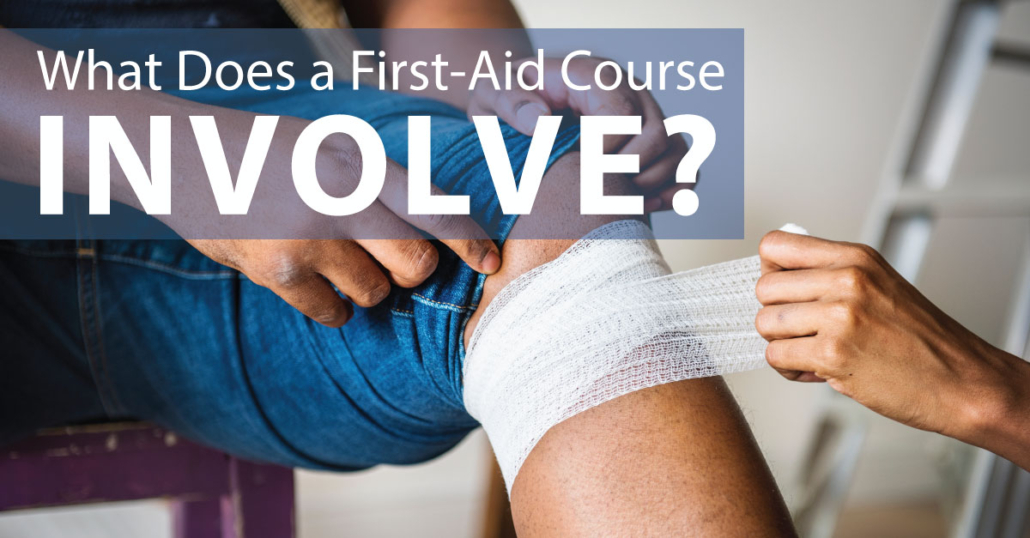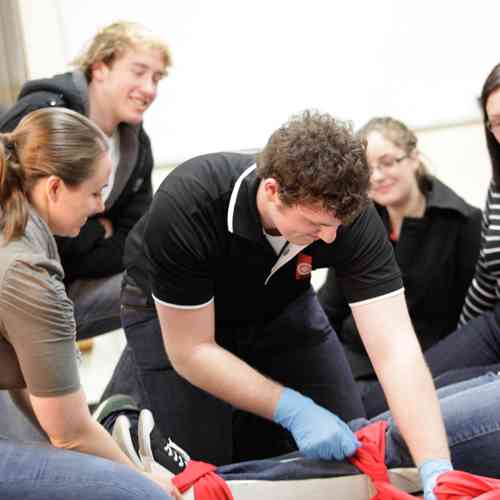Introduction: Comprehending the Importance of CPR Training
When it pertains to emergencies, every 2nd matters. Cardiopulmonary resuscitation (MOUTH-TO-MOUTH RESUSCITATION) is a vital ability that can indicate the difference between life and death. As you prepare for your upcoming CPR training sessions, understanding what to expect and just how to approach this essential ability is essential. Whether you're http://beckettlbyk693.tearosediner.net/hltaid012-childcare-emergency-treatment-training-a-needs-to-for-new-parents intending to become licensed in a Child Treatment Emergency treatment Course or an adult-oriented CPR Course, the understanding you get will encourage you to act successfully in real-life situations.
In this post, we will check out thorough methods on exactly how to get ready for your upcoming CPR training sessions. We'll cover everything from picking the appropriate training course, what materials to review, useful suggestions for effective knowing, and a lot more. Allow's dive in!
How to Prepare for Your Approaching CPR Training Sessions
Preparing for your CPR training session involves not just psychological preparedness but likewise logistical factors to consider. Right here are some crucial actions:
1. Select the Right Course
Before anything else, choosing the best program customized to your requirements is vital. Are you seeking a Child Treatment Emergency treatment Course? Or probably a much more basic CPR Course? Think about alternatives like the hltaid012 Childcare First Aid Course Near Me, which concentrates especially on first aid for children.
- Research Options: Use on the internet resources or regional health and wellness organizations. Check Qualifications: Make certain the instructors are licensed professionals.
2. Understand Training Course Prerequisites
Most programs have requirements that might call for prior knowledge or certifications. As an example:
- Some programs may require conclusion of an earlier training course like the hltaid009 mouth-to-mouth resuscitation Course Verify if there's any kind of age restriction or specific conditions required before enrolling.
3. Collect Necessary Materials
Each training course normally supplies materials like guidebooks or on-line sources. Nevertheless, having auxiliary materials can be beneficial.
- Look for books on emergency treatment and CPR techniques. Consider watching instructional video clips readily available on platforms like YouTube.
4. Familiarize Yourself with CPR Techniques
Before attending your training session, familiarize yourself with basic mouth-to-mouth resuscitation techniques through various resources:
- Online tutorials Apps committed to emergency treatment and CPR Practice utilizing a mannequin if possible
This pre-course direct exposure will offer you a running start when hands-on training begins.

5. Practice Mindfulness & Focus
Entering your training with a focused and tranquil way of thinking can dramatically enhance your learning experience:
- Consider mindfulness strategies such as reflection or deep breathing exercises. Avoid diversions; locate a peaceful space where you can focus on evaluating material.
The Framework of Normal CPR Training Sessions
Understanding what a normal session looks like can aid demystify any type of worries you may have.
1. Introduction and Overview
Most sessions start with an introduction that covers:
- The significance of CPR Statistics connected to heart health Overview of what will be covered during the session
2. Hands-On Skills Practice
Hands-on method is typically among the most beneficial facets hltaid009 CPR training opportunities nearby of any CPR training course:
Basic Life Support (BLS) skills Choking relief techniques Using an Automated External Defibrillator (AED)
These skills will certainly be experimented mannequins and other simulation tools.
3. Circumstances and Function Playing
Role-playing various emergency situations aids individuals use their abilities in sensible situations:
- Participants might simulate a situation where a person breaks down suddenly. Instructors guide participants via each step of reacting appropriately.
What You Required to Give Your Training Session
To ensure you're fully prepared, think about bringing along a number of things:
1. Individual Identification and Accreditation Cards
Some courses might call for evidence of identity or previous certifications.
2. Note Pads and Composing Tools
Taking notes during talks can enhance retention:
- Bring pens, pencils, and highlighters.
3. Water Bottle & Snacks
Staying moistened keeps your focus sharp throughout lengthy sessions.
Tips for Optimizing Your Discovering Experience Throughout Training
So you've enlisted in your training course-- currently what? Below are methods to make one of the most out of your time:
1. Engage Actively in Class Discussions
Don't shy away from asking questions or looking for information when required! Involving actively signals instructors that you're invested in learning.
2. Network with Fellow Participants
Building connections with others taking the very same course provides possibilities for group research study later on.
Post-Course Actions: What Comes Next?
After completing your training course, there are very important follow-up actions:
1. Evaluation Your Abilities Regularly
Practicing frequently ensures that skills continue to be fresh in your mind:
- Schedule monthly session with good friends or household members.
2. Maintain Certifications Up-to-Date
Most qualifications need renewal every 2 years; don't let your own lapse!
FAQs concerning Preparing for Your Approaching CPR Training Sessions
1. What should I use to my CPR training session?
Wear comfy clothes that permits mobility because you'll be exercising physical skills.
2. Can I take a Child Care First Aid Course online?
Yes! Numerous companies offer on-line variations of the Child Care First Aid courses; simply guarantee they're accredited.
3. How much time does a normal CPR course last?
Courses vary however generally range from 4 to 8 hours depending upon whether they consist of added topics like emergency treatment training.


4. Will certainly I obtain certification after completing my training?
Most licensed training courses supply certificates upon effective completion; get in touch with your teacher beforehand!
5. Is it needed to have previous medical knowledge prior to taking a CPR course?
No previous clinical knowledge is called for; these courses are made for novices as well as those wanting to freshen their skills.
6. Exist any kind of age constraints for taking these courses?
While many programs enable participants as young as 12 years old, always inspect specific demands based on location or establishment guidelines.
Conclusion: Accepting Preparedness With Education
As we end our expedition right into getting ready for upcoming CPR training sessions, it's clear that preparation plays an essential function in grasping life-saving abilities efficiently! From carefully picking pertinent courses-- like the hltaid012 Child Care Emergency treatment Courses Near Me-- to proactively engaging throughout course discussions-- every effort contributes toward becoming competent at supplying care when it matters most! Equip on your own today due to the fact that being ready might conserve somebody's life tomorrow!